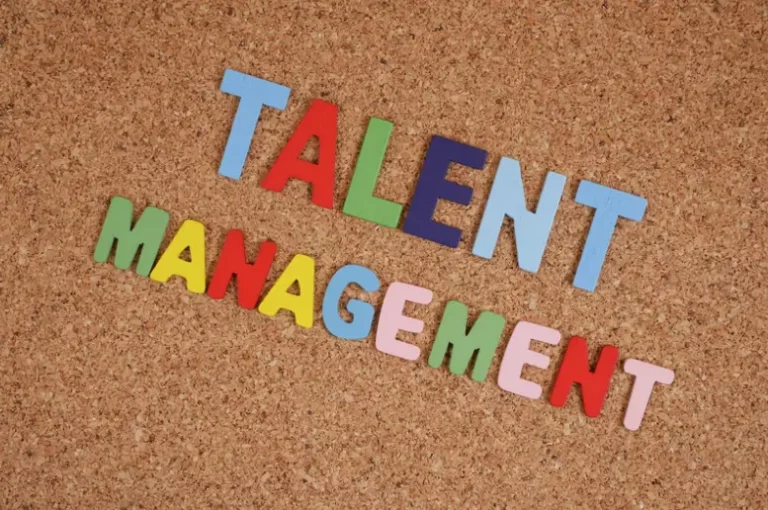“Finding the right person for the job is like searching for a pearl in an ocean of possibilities.”
Adapted from a saying by an unknown author
The Talent Acquisition Conundrum in SMEs
In the vast and dynamic world of small and medium-sized enterprises (SMEs), talent acquisition emerges as a formidable challenge, often acting as a bottleneck in organizational growth and innovation. The process of attracting, screening, and hiring the right candidates is fraught with complexities, ranging from limited resources to the fierce competition for top talent. SMEs, with their smaller teams and often niche markets, face the Herculean task of identifying individuals who not only possess the required skills and experience but also fit the unique cultural and operational fabric of the company.

The journey of talent acquisition in SMEs is akin to navigating a labyrinth, where each turn presents new puzzles to solve. From crafting enticing job descriptions to sifting through a deluge of applications, the recruitment process is both time-consuming and resource-intensive. Furthermore, the stakes are high, as hiring mistakes can be particularly costly for SMEs, impacting everything from team dynamics to financial stability.
AI as the Game Changer in Recruitment
Enter the world of Artificial Intelligence (AI), a realm where data meets decision-making, offering a beacon of hope and innovation for SMEs embroiled in the recruitment challenge. AI, with its ability to analyze vast datasets and recognize patterns, presents a transformative solution for talent acquisition. It transcends the traditional boundaries of human capabilities, providing insights and efficiencies previously unattainable.

- Automated Candidate Screening: AI-powered tools can automate the screening of resumes, efficiently parsing through thousands of applications to identify the most suitable candidates based on predefined criteria. This not only accelerates the recruitment process but also enhances its accuracy, ensuring that no potential gem remains undiscovered.
- Enhanced Matching Algorithms: Beyond mere keyword matching, AI algorithms can delve into the nuances of candidate profiles and job descriptions, facilitating a deeper and more meaningful alignment between the job requirements and applicants’ skills and experiences. This sophisticated matching process increases the likelihood of a successful hire.
- Predictive Analytics for Cultural Fit: AI can extend its analytical prowess to assess the cultural fit of candidates, predicting how well they would integrate with the existing team and company ethos. This is crucial for SMEs, where a cohesive team environment can significantly influence productivity and morale.
- Bias Reduction: One of the most compelling advantages of AI in recruitment is its potential to reduce unconscious biases that may influence human decision-making. By relying on data-driven analysis, AI helps ensure a more diverse and inclusive hiring process.
PeakMet: Empowering SMEs in Talent Acquisition
As we venture into the final chapters of our exploration, PeakMet emerges as a beacon of innovation in the SME landscape, harnessing the power of AI to revolutionize talent acquisition. PeakMet’s platform is not just a tool; it’s a strategic ally, designed to alleviate the recruitment woes of SMEs through advanced AI and ML technologies.
- Intelligent Recruitment Solutions: PeakMet offers a suite of intelligent recruitment solutions that streamline the hiring process, from automated screening to advanced matching algorithms. This enables SMEs to focus more on strategic decisions rather than getting bogged down in the operational quagmire of talent acquisition.
- Data-Driven Decision Making: By leveraging predictive analytics and big data, PeakMet facilitates informed decision-making, ensuring that SMEs hire not just for today but for the future growth and evolution of their business.
- Cultural and Operational Harmony: PeakMet’s AI tools extend their capabilities to assessing cultural fit, ensuring that new hires resonate with the company’s ethos and contribute positively to the team dynamic.
- Impact on SMEs: The adoption of PeakMet’s AI-driven recruitment solutions can lead to significant improvements in hiring efficiency, cost reduction, and overall operational productivity for SMEs. It not only transforms the talent acquisition process but also empowers SMEs to build a workforce that is skilled, diverse, and aligned with their strategic goals.
In conclusion, as SMEs navigate the intricate challenges of talent acquisition, the integration of AI technologies like those offered by PeakMet presents a promising horizon. By embracing the AI revolution in recruitment, SMEs can transcend traditional limitations, ushering in an era of enhanced efficiency, accuracy, and strategic growth in talent management.


